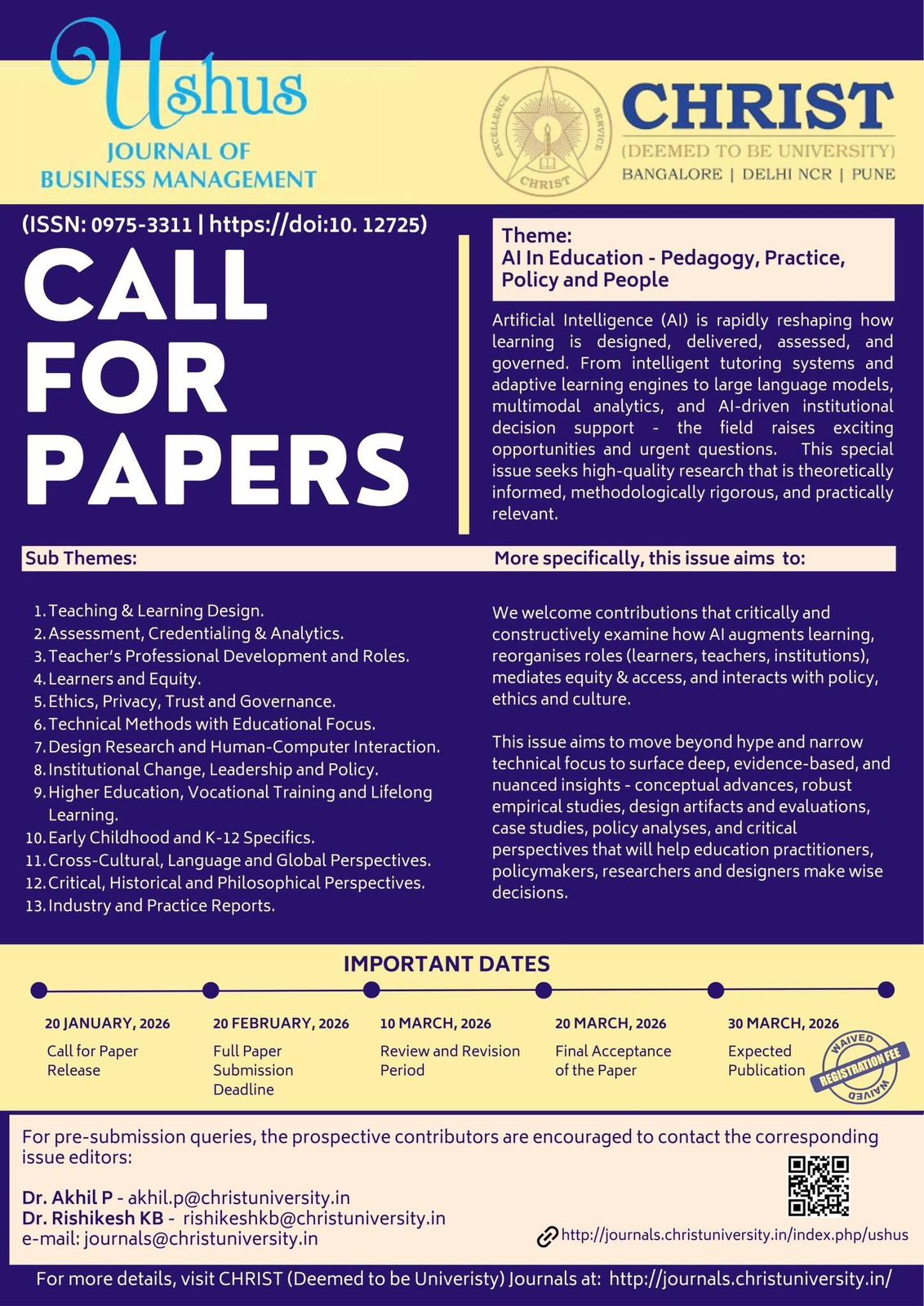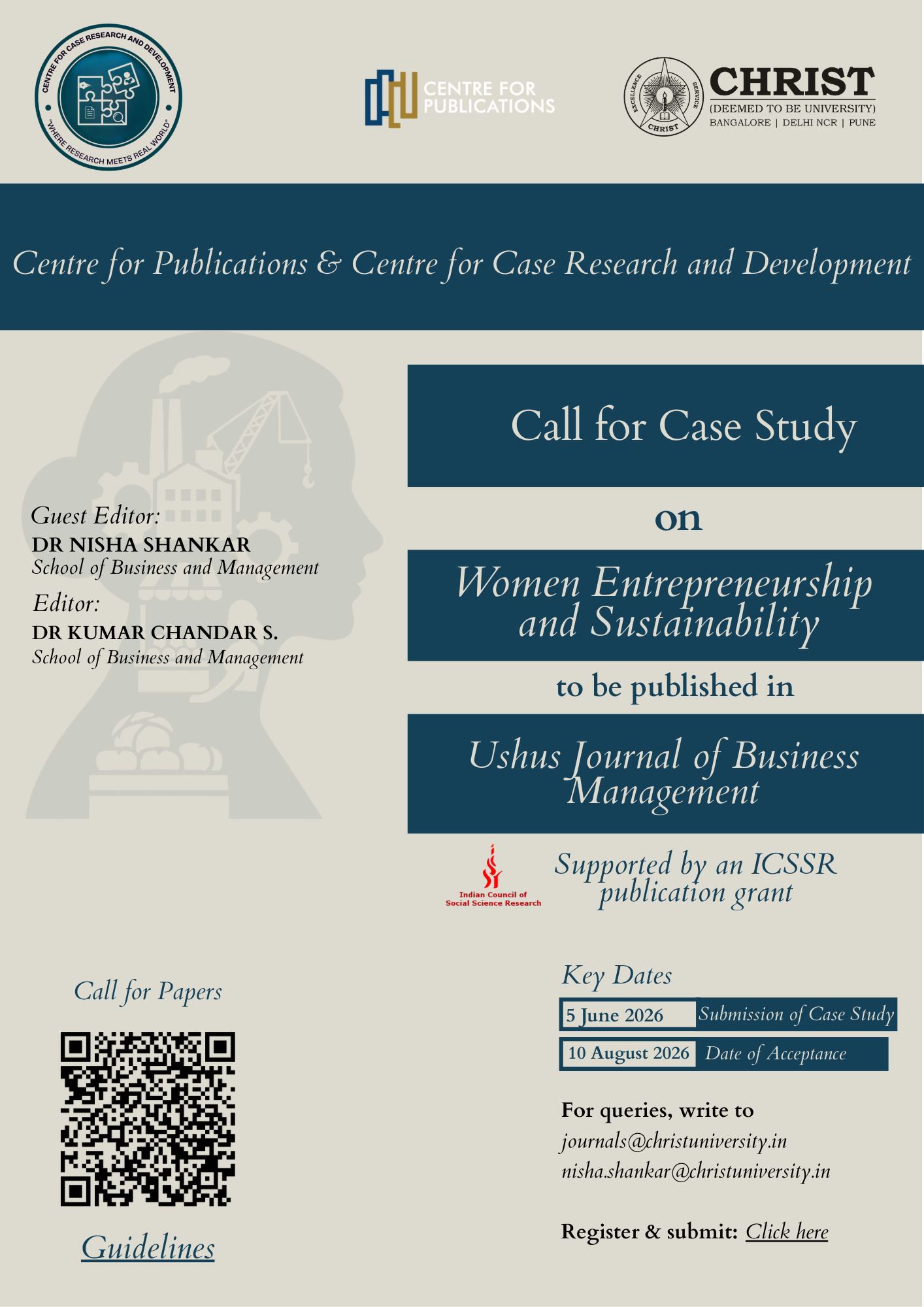Promoting Environment Sustainability Through Green HRM: The Socially Responsible Organizations
DOI:
https://doi.org/10.12725/ujbm.59.1Keywords:
Green HRM, Environmental Performance, Performance Management, Reward and Compensation, Employee Empowerment, Employee Performance, Positive OutcomeAbstract
The issue of global warming can be attributed to over usage of the environment and also because of the industrial revolution, which brought degradation to the world environment. Global warming has been causing a negative impact on the industries, and these worries have created more strain on the organizations. These organizations have started to practice environmentally-pleasant methods and also started producing products that are environment-friendly. These environmental protection measures were used to control means of practicing environment-friendly measures in different departments such as production, finance, advertising and marketing and others. Recently, Human Resource Management has also joined this group, and now Green Human Resource Management (GHRM) has also started to gain importance. GHRM assists in improving Environmental Performance (EP) growing through personnel dedication which is closer to the environment.
References
Shaban, S. (2019). Reviewing the concept of Green HRM and its Application practices. https://doi.org/10.5539/libr.v12n5p86
Aravamudhan, N. R. (2012). Green HR getting into the business of green. HRM Review, 12, 31-40. ISSN: 1053-4822.
Bangwal & Tiwari (2017). Green HRM, Work-life and Environment performance. International Journal of Environment, Workplace and Employment, 4(3), 244-268. https://doi.org/10.1504/IJEWE.2017.087808
Behrend, T. S., Baker, B. A. & Thompson, L. F. (2009). Effects of pro-environmental recruiting messages: the role of organizational reputation. Journal of Business and Psychology, 24(3), 341-35. https://doi.org/10.1007/s10869-009-9112-6
Carter, C., & Dressner, M. (2001). Purchasing role in environment management: Cross Functional development of Grounded theory. Journal of Supply Chain Management, 12-27. https://doi.org/10.1111/j.1745-493X.2001.tb00102.x
Chesbrough, H. W. (2003). Open Innovation: The New Imperative for Creating and Profiting from Technology, Harvard Business School Press, and Boston.
Daily, B. F., & Huang, S. C. (2007). Achieving sustainability through attention to human resource factors in environmental management. International Journal of Operations & Production Management, 21(12), 1539-1552. https://doi.org/10.1108/01443570110410892
Deshwal, P. (2015). Green HRM: An organizational strategy of greening people. International Journal of Applied Research, 1(13), 176-181. ISSN Online: 2394-5869
Gill, M. (2011). Green HRM: People Management Commitment to Environment Sustainability. Research Journal of recent Science, 244-254.
Govindarajulu, N., & Daily, B. F. (2004). Motivating Employees for Environmental improvement. Industrial Management and Data Systems, 104, 364-372. https://doi.org/10.1108/02635570410530775
Guerci, M., Longoni, A., & Luzzini, D. (2016). Translating stakeholder pressures into environmental performance: the mediating role of green HRM practices. International Journal of Human Resource Management, 27(2), 262-289. https://doi.org/10.1080/09585192.2015.1065431
Haddockmillar, J., Sanyal, C., & Mullercamen, M. (2016). Green human resource management: a comparative qualitative case study of a United States multinational corporation. International Journal of Human Resource Management, 27(2), 192-211. https://doi.org/10.1080/09585192.2015.1052087
Jabbour, C. J. C., Santos, F. C. A. & Nagano, M. S. (2008). Environmental management system and human resource practices: is there a link between them in four Brazilian companies? Journal of Cleaner Production, 16(17), 1922-1925. https://doi.org/10.1016/j.jclepro.2008.02.004
Jabbour, C. J. C., Santos, F. C. A., & Nagano, M. S. (2010). Contributions of HRM throughout the stages of environmental management: methodological triangulation applied to companies in Brazil. International Journal of Human Resource Management, 21(7), 1049-1089. https://doi.org/10.1080/09585191003783512
Jackson, S. E., Renwick, D. W. S., Jabbour C. J. C., & Camen, M. M. (2011). State-of-the-Art and Future Directions for Green Human Resource Management: Introduction to the Special Issue. German Journal of Research in Human Resource Management, 25(2), 99-116.
Justin, V. (2008). Green workplace, SHRM Survey, 1-6.
Lado, A. A., & Wilson, M. C. (1994). Human resource systems and sustained competitive advantage: A competency-based perspective. Academy of Management Review, 19(4), 699-727. https://doi.org/10.5465/amr.1994.9412190216
Lee, K. H. (2009). Why and how to adopt green management into business organizations: the case Study of Korean SMEs in manufacturing industry’. Management Decision, 47(7),1101-1121. https://doi.org/10.1108/00251740910978322
Mehta, K., & Chugan, P. K. (2015). Green HRM in pursuit of environmentally sustainable business. Univers. J. Ind. Bus. Manag. 3, 74-81.
Müller-Camen, M., Haddock-Millar, J., & Sanyal, C. (2016). Green human resource management: a comparative qualitative case study of a United States multinational corporation. The International Journal of Human Resource Management, 27(2), 192-211. https://doi.org/10.1080/09585192.2015.1052087
Nijhawan, G. (2014). Green HRM –a requirement for sustainable Environment. Pariplex-Indian Journal of Research, 3(10).
Opatha, H. H., & Arulrajah, A. A. (2014). Green Human Resource Management: simplified general reflections. International Business Research, 7, 101-112. https://doi.org/10.5539/ibr.v7n8p101
Prasad, R. (2013). Green HRM -Partner in Sustainable Competitive Growth. Journal of Management Sciences and Technology, 1(1).
Renwick, D. E., Redman, T.,& Maguire, S. (2013). Green human resource management: a review and research agenda. International Journal of Management Reviews, 15, 1-14. https://doi.org/10.1111/j.1468-2370.2011.00328.x
Renwick, D., Redman, T., & Maquire, S. (2008). Green HRM: A Review, Process Model, a Research Agenda, Discussion Paper Series. University of Sheffield Management School, the University of Sheffield.
Downloads
Published
How to Cite
Issue
Section
License
Copyright (c) 2022 Padmavathy S, Ashok J

This work is licensed under a Creative Commons Attribution-NonCommercial-NoDerivatives 4.0 International License.



